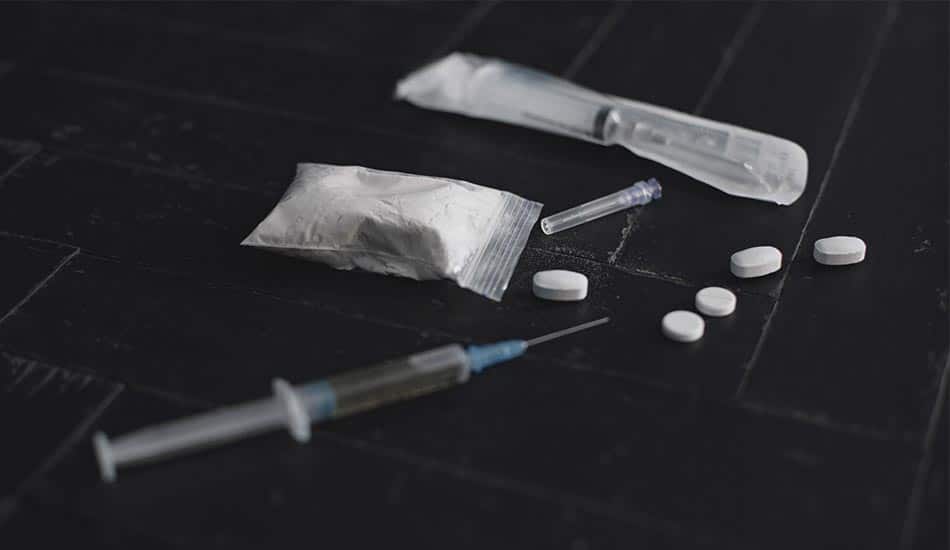- Home
- Treatment
Treatment Designed for You.
Get in touch with Absolute Awakenings today and begin your journey to long-term healing & recovery. - What We Treat
Get help today, start your journey!
An Experience in Healing
Get in touch with Absolute Awakenings today and begin your journey to long-term healing & recovery. - About
The Rehab You've Been Looking For
Get in touch with Absolute Awakenings today and begin your journey to long-term healing & recovery. - Tour
- Resources
Resources
How Opioid Misuse Impacts the Brain and Body Over Time
December 8, 2025Medical Detox for Long-Term Sobriety: Why This First Step Matters
December 8, 2025Don't Wait Another Day.
Get in touch with Absolute Awakenings today and begin your journey to long-term healing & recovery. - Admissions
The Rehab You've Been Looking For
Get in touch with Absolute Awakenings today and begin your journey to long-term healing & recovery. - Contact
(866) 627-0196
3000 NJ-10, Morris Plains, NJ 07950
admissions@absoluteawakenings.com
Schedule a Tour Now
Get in touch with Absolute Awakenings today and begin your journey to long-term healing & recovery.
Begin Your Journey Now
Begin Your Journey Now
- Home
- Treatment
Treatment Designed for You.
Get in touch with Absolute Awakenings today and begin your journey to long-term healing & recovery. - What We Treat
Get help today, start your journey!
An Experience in Healing
Get in touch with Absolute Awakenings today and begin your journey to long-term healing & recovery. - About
The Rehab You've Been Looking For
Get in touch with Absolute Awakenings today and begin your journey to long-term healing & recovery. - Tour
- Resources
Resources
How Opioid Misuse Impacts the Brain and Body Over Time
December 8, 2025Medical Detox for Long-Term Sobriety: Why This First Step Matters
December 8, 2025Don't Wait Another Day.
Get in touch with Absolute Awakenings today and begin your journey to long-term healing & recovery. - Admissions
The Rehab You've Been Looking For
Get in touch with Absolute Awakenings today and begin your journey to long-term healing & recovery. - Contact
(866) 627-0196
3000 NJ-10, Morris Plains, NJ 07950
admissions@absoluteawakenings.com
Schedule a Tour Now
Get in touch with Absolute Awakenings today and begin your journey to long-term healing & recovery.
- Home
- What We Treat
- Substance Abuse
- Heroin
NJ Heroin Rehab Center
Heroin Addiction: Signs, Symptoms, Risks, and Treatment Resources
Heroin is a powerful opioid drug that has plagued the United States for several decades. Due to how it affects the brain, heroin can cause an extremely intense form of addiction, in addition to brain damage and serious physical conditions.


What We Treat
We Accept With Most Major Insurance
If you or a loved one is ready to get help but finances are holding you back, give us a call. We can work with your health insurance provider.






Related Topics
Table of Contents
What is Heroin?
Heroin is a synthetic opioid drug made from morphine. Morphine is commonly used in hospitals to treat patients after surgery and those with conditions that cause severe pain. While morphine has medical use, heroin does not. It is primarily a street drug and is considered a Schedule I substance according to the Controlled Substances Act.
Regarding heroin usage in the US, more than 70,000 people overdosed on synthetic opioids, including heroin, in 2021.[1] Heroin targets the brain’s pleasure center to induce a powerful sense of euphoria. This keeps the brain from producing its own pleasure hormones and instead forces it to rely on the presence of the drug.
Heroin Addiction and Abuse
Heroin is also especially addictive due to the way it overtakes the brain’s ability to produce feel-good hormones like dopamine or serotonin. This makes it very difficult for the brain to cope naturally without the artificial dopamine rush.
Some people who abuse heroin misuse opioid painkillers first but seek the more intense high that heroin offers. Someone with a substance use disorder, mental health concerns, or a family history of substance use is more likely to abuse heroin.
Signs of Addiction to Heroin
Common signs of addiction include sweating, watery eyes, needle marks on the arms, and drug paraphernalia, such as syringes or melted spoons. It is also common to experience cravings or withdrawal symptoms when abusing heroin.
Effects of Heroin Abuse
Using heroin will first make a person feel euphoric. This feeling is followed by a crash, which makes the person feel extremely sick and depressed. This may compel you to seek out more heroin to escape the negative feelings of the crash and return to the drug’s euphoria. This creates a cycle of addiction that is very difficult to overcome alone.
Dangers of Long-Term Heroin Use
The long-term effects of heroin use include the following:[3]
- Heart infection
- Abscesses
- Collapsed veins
- Liver and kidney disease
- Lung infections
Some people may also experience mental changes, such as increased anxiety, paranoia, and depression.
Side Effects of Heroin
While heroin might cause a strong sense of euphoria at first, it is then followed by a variety of painful side effects. These include tremors, nausea, vomiting, stomach cramps, body pain, headaches, and confusion.
Many will experience mood changes, paranoia, anxiety, and depression. Some may have suicidal thoughts or may become violent toward others. Heroin can also wreak havoc on your internal organs and brain.
Statistics on Heroin Use, Misuse, and Addiction
The number of heroin overdose deaths increased sevenfold in 2020 compared to twenty years previous.[2] People rarely use heroin as the first drug they abuse. Many have already misused opioid painkillers before they move on to heroin.
There are a number of misconceptions related to heroin use. Some believe that if they snort or smoke the substance instead of injecting it, they won’t get addicted. However, this isn’t true, and heroin use can lead to addiction no matter how it’s consumed.
Can You Overdose on Heroin?
Yes, it is possible to overdose on heroin, even the first time you try it. Due to the cyclical nature of heroin addiction, you may need to take higher doses to keep experiencing the strong euphoria from past uses. Without intervention, taking increasingly higher doses will eventually lead to overdose. An overdose is more likely when other substances are taken with heroin.
Signs and Symptoms of Heroin Overdose
A heroin overdose will cause a person to become confused and ill. They may start vomiting or experiencing abdominal cramps. Many will lose consciousness. Some will have seizures or heart attacks, while others may die on the spot.
What to do if you suspect someone is overdosing on Heroin:
Because of the high fatality risk associated with heroin overdoses, it is important to ensure that they get medical treatment as soon as possible. Call 911 and stay with the person until the paramedics get there.

How is Heroin Taken?
Heroin is primarily injected into the arm. This is the fastest and most direct way for a person to experience the drug’s euphoric effects. As soon as the drug enters the bloodstream, it will travel to the brain and start working. It is also possible to snort or smoke heroin, but these methods are less common.
Some people who use heroin mix it with other drugs. Heroin becomes especially dangerous when you mix it with other substances and can lead to a coma, seizures, heart attack, or death.
On the street, heroin is often cut with caffeine, laundry detergent, cornstarch, talcum powder, and bug poison. All of these substances can further increase the danger of heroin.
Heroin Addiction Treatment
Heroin addiction treatment will be necessary for those who can’t stop taking this substance alone. Heroin rehab involves therapy and other supportive measures, such as mindfulness, yoga, and socialization.
Treatment will take anywhere from a few weeks to months, depending on the severity of the substance use history. Detox is the first and highest level of intervention that helps rid the body of harmful substances and manage withdrawal symptoms.
Partial Care, Intensive Outpatient, and ongoing treatment programs offer the support and resources needed to help you through dependence and addiction.
Therapies Used in Heroin Addiction Treatment
Dual Diagnosis for Co-Occurring Disorders
Heroin can cause paranoia, anxiety, and depression. Some people who use heroin may also experience consistent symptoms of psychosis. They may become confused, delusional, or prone to bouts of violence. This can lead to brain damage and increased substance use.
Many people diagnosed with a substance use disorder also suffer from a co-occurring mental health condition such as anxiety, depression, or PTSD. When these conditions occur together, as is the case for approximately half of the treatment participants, one condition can agitate the other, making recovery more difficult.
Dual diagnosis treatment targets each condition individually to provide the best possible support for each and promote lasting healing.
Heroin Withdrawal Management Treatment
For most patients, detoxing takes a few days to a few weeks. This is the most vulnerable time of recovery and treatment when the risk of relapse is the highest. By seeking professional treatment and therapy interventions, you will be equipped and supported through this process and given the best possible chance of success.
Drugs Used in Heroin Withdrawal Management
When medication-assisted treatment is appropriate, methadone and buprenorphine are two common drugs used to ease heroin withdrawal symptoms. This is useful for reducing the pain and discomfort that is associated with the detox process.

Amanda Stevens, BS
Medical Content Writer
Amanda Stevens is a highly respected figure in the field of medical content writing, with a specific focus on eating disorders and addiction treatment. Amanda earned a Bachelor of Science degree in Social Work from Purdue University, graduating Magna Cum Laude, which serves as a strong educational foundation for her contributions.
Absolute Awakenings Editorial Guidelines
At Absolute Awakenings, we take information integrity seriously. We have dedicated our resources to ensure that all content published to our blog is medically sound. As such, all content on our blog has been thoroughly reviewed by a doctorate level clinician such as a Medical Doctor, or Psy.D, so that you can trust all of the data we publish.
What We Treat
We Accept With Most Major Insurance
If you or a loved one is ready to get help but finances are holding you back, give us a call. We can work with your health insurance provider.






Related Topics
the journey to recovery starts today
Find Heroin Addiction Recovery in NJ at Our New Jersey Heroin Treatment Center
Our experienced multi-disciplinary team is skilled in providing evidence-based treatments, intertwined with holistic therapies and unmatched aftercare support.
Heroin addiction might have brought you to us, but courage will see you through. Recovery is not just about escaping addiction – it’s about reclaiming your life, your dreams, and your potential. Let us walk with you on this important journey. At Absolute Awakenings, you’ll find that treatment is not just an intervention – it’s a new beginning. Let your recovery start with us, at our drug & alcohol rehab center in New Jersey. Contact us today to start your journey.
Frequently Asked Questions
Why Is Heroin So Addictive?
Heroin targets the brain’s pleasure center and creates an intense feeling of euphoria. The brain gets used to the presence of this drug and stops producing its own feel-good hormones. When you stop taking the drug suddenly, your brain will go into a state of turmoil because it is without any of these pleasurable hormones. This is when withdrawal symptoms occur.
What Are Heroin Withdrawal Symptoms Like?
The most common withdrawal symptoms include nausea, vomiting, stomach cramps, fever, sweating, and headaches. However, some withdrawal symptoms can be very dangerous. Some include seizures, strokes, heart attacks, a coma, and death. This is why it’s important to detox with trained professionals around you to help.
Where Does Heroin Come From?
Heroin is derived from morphine. Morphine is a natural opioid derived from the poppy plant. In most cases, heroin is more dangerous than morphine, even though they’re both opioids. Heroin is a street drug that is often mixed with dangerous fillers, like pesticides or laundry detergent.
What Does Heroin Look Like?
Most heroin is an off-white powder. Brilliant white heroin is considered high-quality because it is more pure. There is also black tar heroin, which is a solid form of the drug rather than a fine powder. There are also examples of brown powdered heroin, which is a far less refined product.
Sources
[1] U.S. Department of Health and Human Services. (2023b, March 31). Drug overdose death rates. National Institutes of Health. Retrieved from https://nida.nih.gov/research-topics/trends-statistics/overdose-death-rates on May 24, 2023.
[2] Centers for Disease Control and Prevention. (2022c, June 6). Heroin overdose data. Centers for Disease Control and Prevention. Retrieved from https://www.cdc.gov/drugoverdose/deaths/heroin/index.html on May 24, 2023.
[3] U.S. Department of Health and Human Services. (2023e, May 18). Commonly used drugs charts. National Institutes of Health. Retrieved from https://nida.nih.gov/research-topics/commonly-used-drugs-charts#heroin on May 24, 2023.
Stories of Hope & Healing
Hear from Our Alumni
A jewel among many local drug and alcohol rehab treatment centers in Denville, New Jersey, the care and treatment options you’ll receive at Absolute Awakenings is second to none. From not knowing if you’ll ever feel in control again to being confident in the path you’re on, we are invested in YOU every step of the way.
Begin Your Journey to Long-Term Healing
Make the Call. Change Your Life.
Yes, You Can Get Your Life Back...
With our trained and compassionate professionals in your corner, freedom can be yours. All it takes is you choose yourself. Choosing a better tomorrow.
© Copyright 2025. All Rights Reserved. AATC.
- Terms & Conditions
- Privacy Policy


